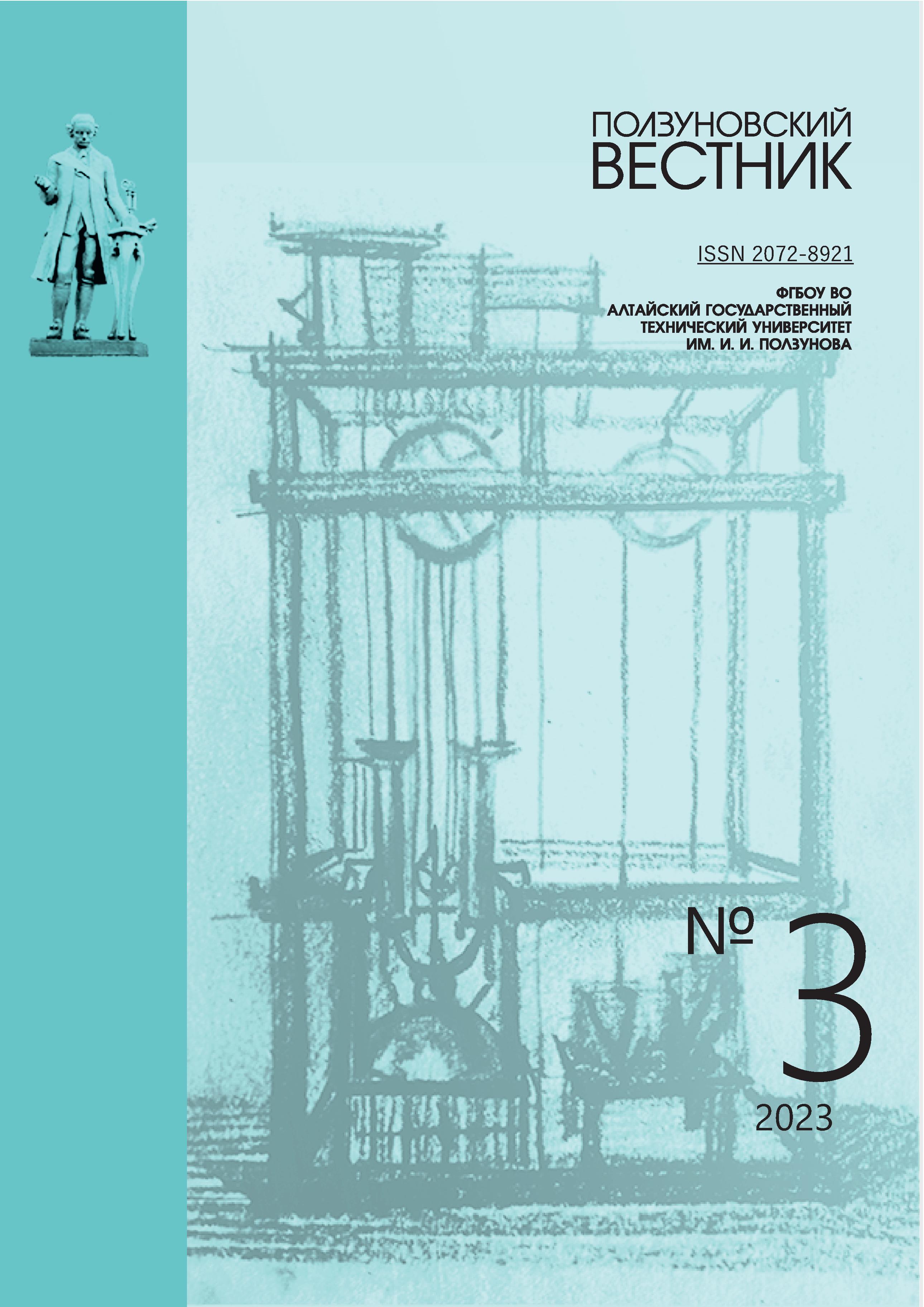CONSUMER PROPERTIES AND NUTRITIONAL VALUE WINTER APPLES
NOKFMQ
DOI:
https://doi.org/10.25712/ASTU.2072-8921.2023.03.013Keywords:
fresh winter apples, consumer properties, nutrient composition, nutritional value.Abstract
The apple tree is the main fruit crop in Russia, the need for fresh fruits of which is 7.3 million tons, and the provision of the population with fresh apples does not reach 50%. The aim of the study was to assess the consumer properties and nutritional value of winter-ripening apples of the varieties Pervouralskaya, Krasa Sverdlovska, Blagaya vest, Sverdlovchanin (manufactured by an individual entrepreneur, the head of the peasant farm A.A. Filippova, Chelyabinsk region, Kaslinsky district, Grigorievka village). The organoleptic characteristics of apples met the requirements of GOST 34314-2017 and were identified as typical for these pomological varieties. The fruits of the apple tree Pervouralskaya and Blagoya vesti contained relatively more sucrose against the background of competing samples, Kras Sverdlovsk - glucose and lactic acid, Sverdlovchanin - fructose and succinic acid. Apples of the Sverdlovchanin variety had more pronounced characteristics and were as close as possible to the harmonious taste. Of the macroelements in the studied varieties of apples were present (mg/kg): K+ (in the range of 992.0-1498.0), P3+ (87.3-146.0), Ca2+ (58.3-91.7), Mg2+ (3.4-29.4), Na+ (1.13), from trace elements: Si2+ (0.90-2.98), Fe2+ (0.35-2.75), B3+ (0.90- 1.32), Al3+ (0.29-1.26), Zn2+ (0.24-0.52), Mn3+ (0.07-0.33), Cu2+ (0.06-0.29), Ba2+ (0.04-0.07) with a relatively high content in Krasa Sverdlovsk fruits and a low content in Pervouralskaya apples. Apples of the Krasa Sverdlovsk variety had a competitive advantage in eliminating the deficiency in the diet of Co2+, Mg2+, K+, Cu2+ and Fe2+. According to the amount of dry matter, insoluble dietary fiber and flavonoids, there were no significant differences between the studied apple varieties. The obtained test results do not allow making an unambiguous choice in favor of one or another variety of apples. The consumer needs to correctly prioritize for himself between their taste and benefit.
References
Луковникова Н.С., Луканова Е.А. Современное состояние производства и реализации яблок в России // Инновационная экономика: перспективы развития и совершенствования. 2021. № 4 (54). С. 84–89.
Дулов М.И. Биохимический состав и производство яблок в странах мира // Наукосфера. 2022. № 2–1. С. 90–96.
Муродова М.М., Кароматов И.Д. Яблоки – лечебное и профилактическое средство // Биология и интегративная медицина. 2018. № 1 (18). С. 119–129.
Michalak A. Phenolic compounds and their antioxidant activity in plants growing under heavy metal stress // Polish Journal of Environmental Studies. 2006. Vol. 15. № 4. P. 523–530.
Назирова Р.М., Абдурахмонов С.Ж., Усмонов Н.Б. Изменение химического состава некоторых сортов яблок при хранении в регулируемой атмосфере // Наука, техника и образование. 2019. № 3 (56). С. 24–27.
Нестерова Н.В., Самылина И.А., Кондрашев С.В. Сравнительный анализ микро-элементного состава яблони лесной и домашней методом рентгенофлуоресцентного анализа // Журнал научных статей «Здоровье и образование в XXI веке». 2019. Т. 21. № 1. С. 80–85.
Фитохимический состав и биологическая активность рода Malus Mill. (Обзор) / Д.К. Сатмбекова [и др.] // Фармация Казахстана. 2022. № 4. С. 238–245.
Бурак Л.Ч., Завалей А.П. Создания продуктов с высокой антиоксидантной активностью с помощью полифенольных веществ яблок. Обзор // The Scientific Heritage. 2022. № 84–1 (84). С. 28–40.
Гасымов Ф.М., Мазунин М.А., Глаз Н.В. Оценка экологической пластичности челябинских сортов яблони // Ученые заметки ТОГУ. 2019. Т. 10. № 3. С. 194–199.
Джураева Ф.К., Мурсалимова Г.Р., Мережко О.Е. Биохимический состав плодов яблони в качестве генетического источника для се-лекции на Южном Урале // Плодоводство и ягодоводство России. 2014. Т. 40. № 2. С. 105–111.
Исследование компонентов, формирующих органолептические характеристики плодов и ягод / И.М. Почицкая [и др.] // Техника и технология пищевых производств. 2019. Т. 49. № 1. С. 50–61.
Хоконов А.Б., Хоконова М.Б. Изменения химического состава сока яблок при созревании и хранении // Биология в сельском хозяйстве. 2022. № 3 (36). С. 32–34.
Минеральный состав яблок / С.М. Мотылёва [и др.] // Новые и нетрадиционные растения и перспективы их использования. 2017. № S13. С. 226–228.
Downloads
Published
How to Cite
Issue
Section
License
Copyright (c) 2023 Natalya L. Naumova, Alexander A. Lukin, Evgeny A. Velisevich

This work is licensed under a Creative Commons Attribution 4.0 International License.
















 .
. This work is licensed under a
This work is licensed under a 
